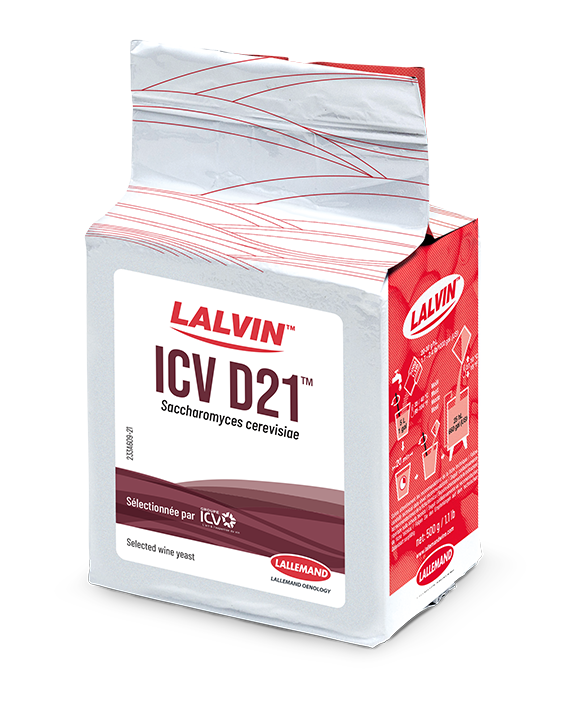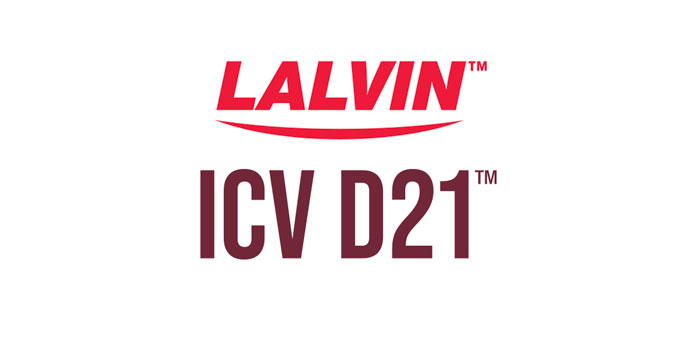
LALVIN ICV D21™
(Saccharomyces cerevisiae cerevisiae)
The “terroir” yeast
Detalles del producto
LALVIN ICV D21™ was isolated in 1999 from the Pic Saint Loup Languedoc “terroir” during a special regional program run by the Institut Coopératif du Vin (ICV) Natural Micro-Flora Observatory and Conservatory. ICV D21 was selected for fermenting red wines with stable color, intense fore-mouth, mid-palate tannin structure, and fresh aftertaste. Unlike most wine yeasts, ICV D21 contributes both higher acidity and positive polyphenol-reactive polysaccharides. Strong interactions of the polysaccharides with the floral and fruity volatile compounds contribute to a more stable aromatic profile in the mouth. These attributes avoid the development of cooked jam and burning-alcohol sensations in highly mature and concentrated Cabernet sauvignon, Merlot and Syrah. During fermentation, ICV D21 produces very few sulfides, and it is also noted for its good fermentation performance, even under high temperature and low nutrient conditions. It allows for the expression of fruit from the grapes while reducing the potential for herbaceous characters in Cabernet sauvignon. When blended with wines fermented with LALVIN ICV D254™ and ICV D80™, ICV D21 brings fresher, sustained intense fruit and lively sensations beginning in the fore-mouth and carrying through to the aftertaste. ICV D21 is also used in very ripe white grapes, barrel fermented to develop fresh fruit aromas, volume and acidity that complement wines fermented with ENOFERM ICV D47™ in blends. Rosé wines fermented with ICV D21 have enhanced red fruit, fore-mouth volume and balance, making it the perfect blending complement to rosé wines fermented with LALVIN ICV GRE™.
Tipos de vino
Información técnica
- Contribución sensorial general: Complements varietal character
- Factor de competitividad: Activo
- Temperatura mínima: 16 °C
- Temperatura máxima: 30 °C
- Requisitos nutricionales: Baja
- Compatibilidad FML : Neutral
- Producción de SO2: Moderada
- Velocidad de fermentación: Moderada
- Alcohol max : 16 %
- Producción de glicerol: Alta
Documentación del producto
Maridaje
- Cabernet Franc: Berry, Rose Style
- Cabernet Sauvignon: Berry, Ageable Tannins
- Malbec: Dark Fruit, Floral, Mid-palate Enhancement
- Petite Syrah: Fruit
- Pinot Noir: Red Fruit
